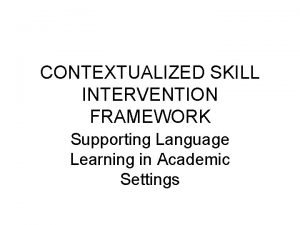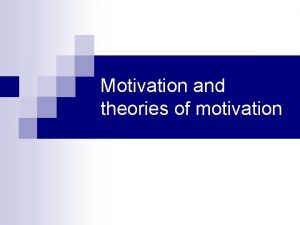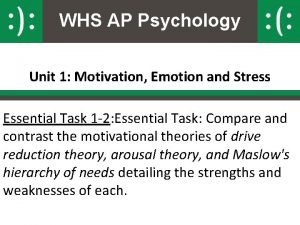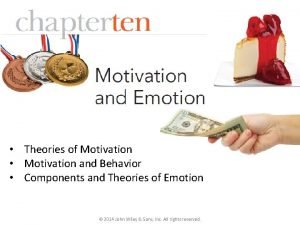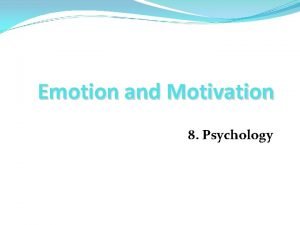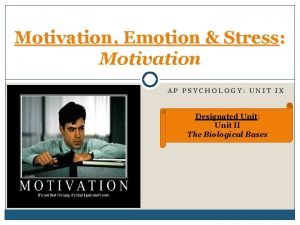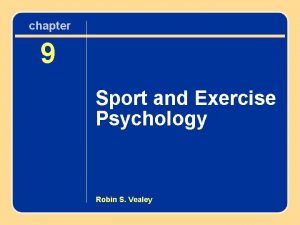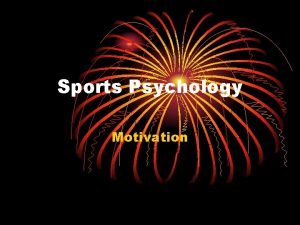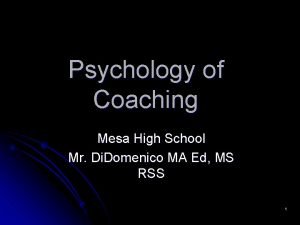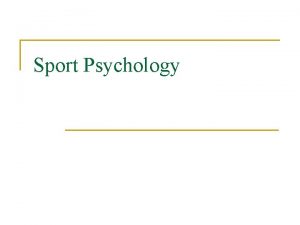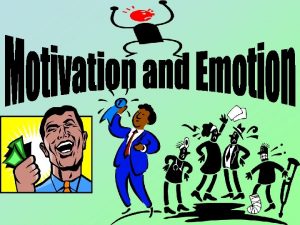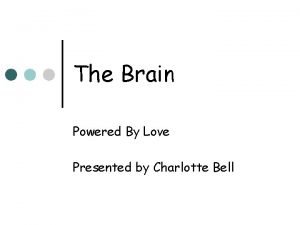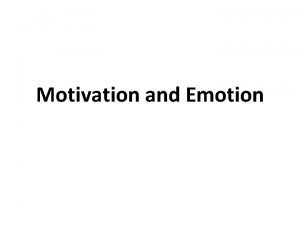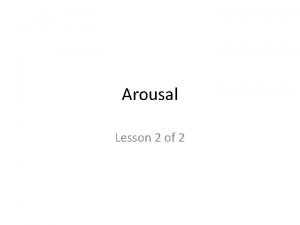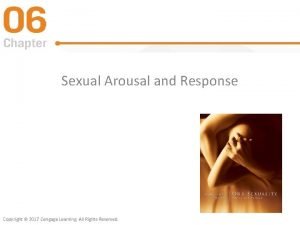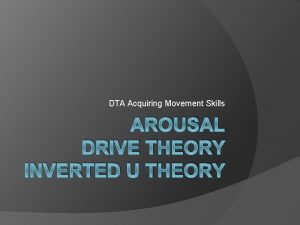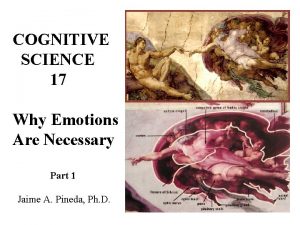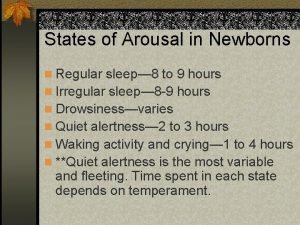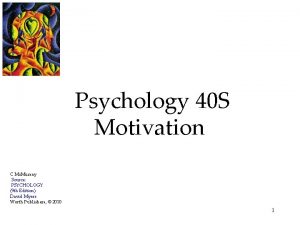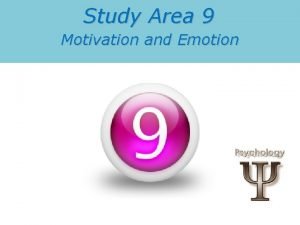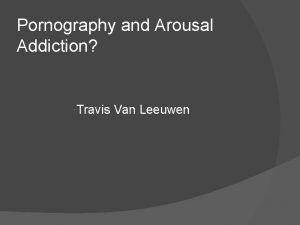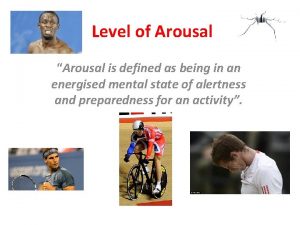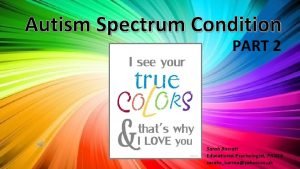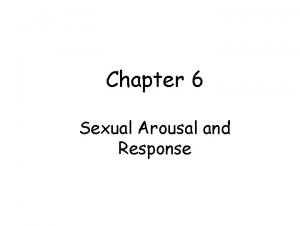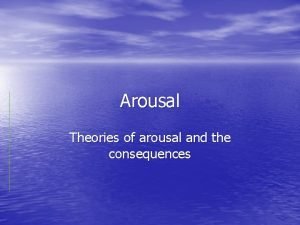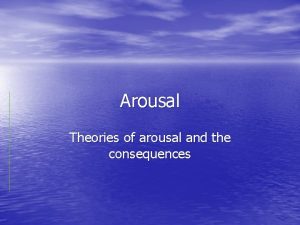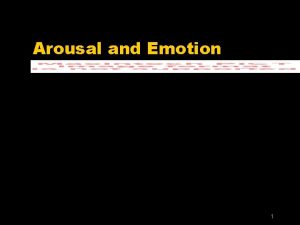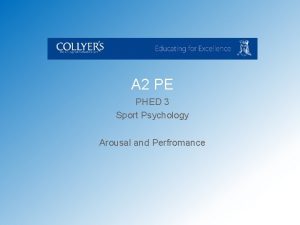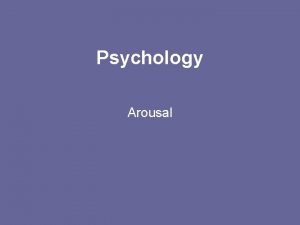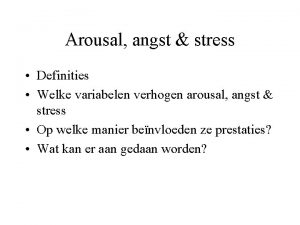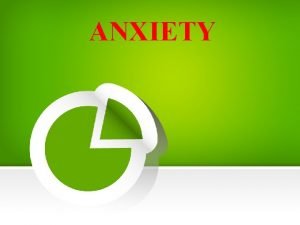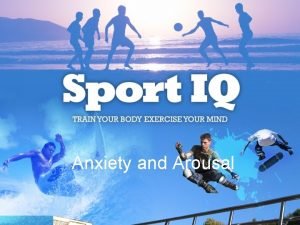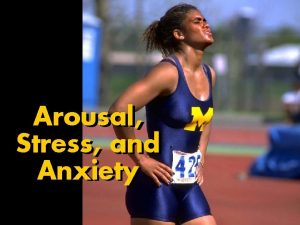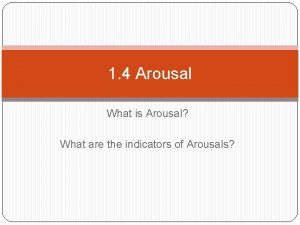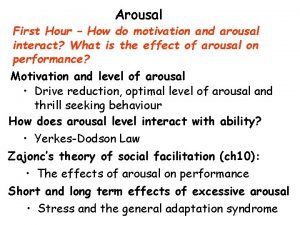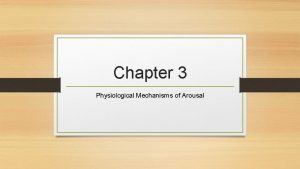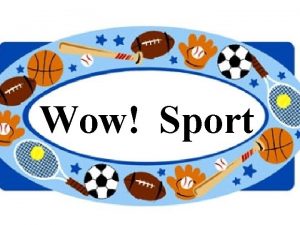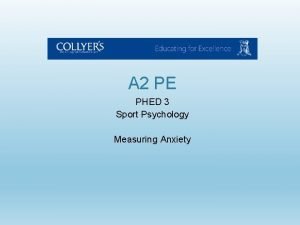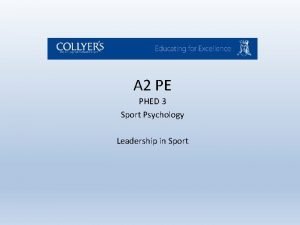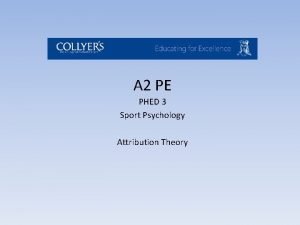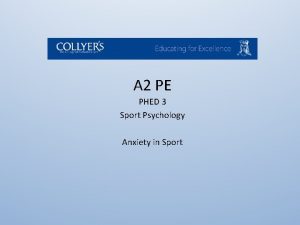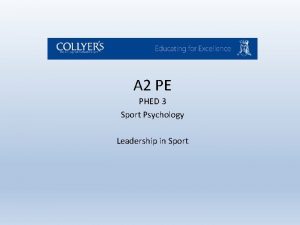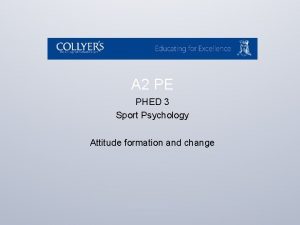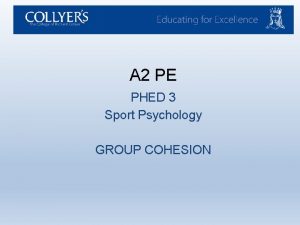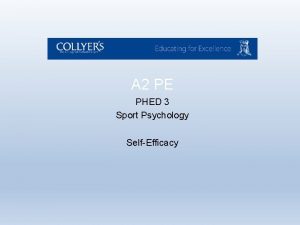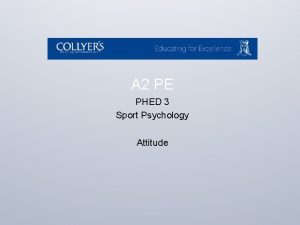A 2 PE PHED 3 Sport Psychology Arousal


























- Slides: 26

A 2 PE PHED 3 Sport Psychology Arousal

Arousal A 2 PE

Starter Activity • Write down on the mini-whiteboards what you think is meant by the term “The Zone”. • What do athlete’s feel like when they are in “The Zone”. • Are there any physical signs that an athlete is in “The Zone”.

DEFINITION ‘the energised state, or the readiness for action that motivates a performer to behave in a particular way’

RAS • Reticular Activating System A cluster od brain cells located in the central part of the brain stem which maintain levels of arousal

• Cognitive - by particular thought process • Somatic - by physical response • Behavioural - by patterns of behaviour Cognitive Indecision Sense of confusion Feeling heavy Negative thoughts Poor concentration Irritability Fear Forgetfulness Loss of confidence Images of failure Defeatist self-talk Feeling rushed Feeling weak Constant dissatisfaction Unable to take instructions Thoughts of avoidance Somatic Increased blood pressure Pounding heart Increased respiration rate Sweating Clammy hands and feet Butterflies in the stomach Adrenaline surge Dry mouth Need to urinate Muscular tension Tightness in neck and shoulders Trembling Incessant talking Blushing Pacing up and down Twitching Yawning Voice distortion Nausea Vomiting Loss of appetite Sleeplessness Behavioural Biting fingernails Lethargic movements Inhibited posture Playing safe Going through the motions Introversion Uncharacteristic displays of extroversion Fidgeting Avoidance of eye contact Covering face with hand









Examples • Jean Van De Velde • Roberto Baggio • Greg Rusedski





Critique of Drive Theory • Athletes in autonomous phase of learning making high profile basic errors – dominant response? • No account for cognitive or somatic anxiety

Critique of Inverted - U • No account for athletes becoming over aroused and then recovering to compete effectively.

Critique of Catastrophe Theory • Research is supportive of this relationship, however… • Testing is difficult • Very difficult to predict a catastrophe

Critique of ZOF • Research generally supports • Better predictor than inverted-U • Problems – No explanation of how ZOF develops – Why are best performances more likely in optimal zone?

State of Flow (Csikszentmihalyi) • “Flow is a state of optimal experiencing involving total absorption in a task, and creating a state of consciousness where optimal levels of functioning often occur” (Jackson, 1995, p. 138) • Autotelic experience - an activity performed because it is it’s own reward

Defining Characteristics of Flow • • • Requirement of skill/challenge balance Merging of action/awareness Clearly defined goals Clear, unambiguous feedback Total concentration on skill being performed

Defining Characteristics of Flow • • • Paradox of control Loss of self-awareness Loss of time awareness Autotelic experience Combination of emotional high and personal best performance
 Phed phed rosebery
Phed phed rosebery Arousal theory of motivation
Arousal theory of motivation Drive reduction theory example
Drive reduction theory example Drive reduction theory ap psychology
Drive reduction theory ap psychology Optimum arousal theory
Optimum arousal theory Drive reduction
Drive reduction Incentive theory ap psychology
Incentive theory ap psychology Exercise psychology definition
Exercise psychology definition Motivation definition by psychologists
Motivation definition by psychologists Psyc 1504 learning journal unit 1
Psyc 1504 learning journal unit 1 Sport psychology history
Sport psychology history Physiological arousal
Physiological arousal Masolow
Masolow Arousal relaxation cycle
Arousal relaxation cycle Fysiologisch arousal
Fysiologisch arousal Stimulus motives definition
Stimulus motives definition Catastrophe theory arousal
Catastrophe theory arousal Sexual response cycle psychology definition
Sexual response cycle psychology definition Inverted u theory diagram
Inverted u theory diagram Physical arousal
Physical arousal States of arousal
States of arousal Physiological needs according to maslow
Physiological needs according to maslow What is this
What is this Arousal addiction
Arousal addiction Arousal level graph
Arousal level graph Arousal cycle
Arousal cycle Boobs erection
Boobs erection
